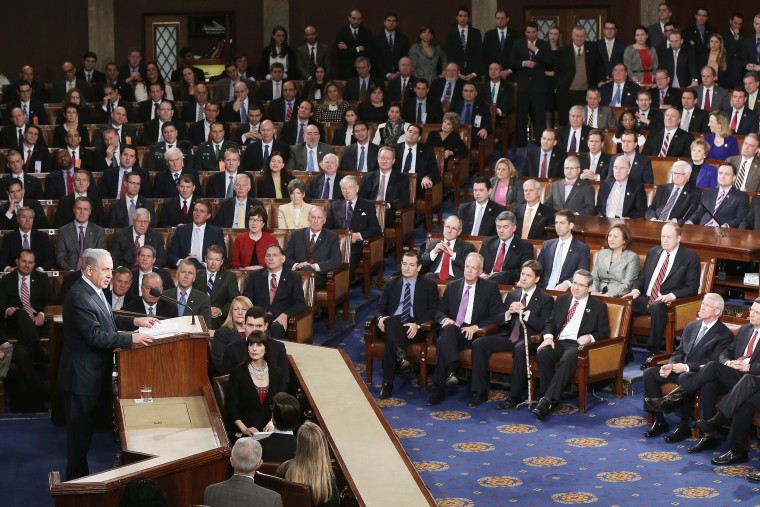As he appears to grow more estranged from President Joe Biden, Israeli Prime Minister Benjamin Netanyahu is considering an old strategy — going around the White House and straight to Republicans in Congress.
A close student of U.S. politics, Netanyahu first tried this maneuver in 2015 when he was denied a meeting with then-President Barack Obama and responded by accepting an invite from Republican leaders in the House and the Senate to address a joint session of Congress.

His speech railing against the Obama administration’s negotiations with Iran marked a rare occasion in which a foreign leader was invited into the well of the House to denounce U.S. foreign policy. And Democrats rightly criticized the speech as an insult to the United States and its president.
Now it looks like Netanyahu is going to try again. He held a virtual meeting with Senate Republicans on Wednesday, while Axios reported that House Republicans are considering inviting him to address Congress, as well. In yet another echo of the 2015 speech, Netanyahu was reportedly denied a chance to address Senate Democrats because Senate Majority Leader Chuck Schumer thought those conversations shouldn't be done in a partisan way.
The GOP invites come as Netanyahu has grown increasingly estranged from Team Biden. The Biden administration and some of its congressional allies have recently become a little more outspoken in condemning Israel’s tactics in its bombardment of Gaza in retaliation for the Oct. 7 terrorist attack by Hamas. This was clear in Schumer’s speech last week calling Netanyahu, who heads the most right-wing government in Israel’s history, an obstacle to peace and urging Israel to hold new elections. The criticism appears to have been the final straw for the prime minister, as he now seems to be clinging to the American right — perhaps, out of political desperation.
It’s a strategy Netanyahu’s late father, Benzion Netanyahu, perfected during his time as a lobbyist in the United States for conservative, pro-Israel policies. As Rafael Medoff explained for the Jewish Telegraphic Agency in 2012, the senior Netanyahu — a historian and political activist — succeeded in making inroads with the Republican Party in the 1940s and the 1950s to lobby for the creation of a Jewish state and other related causes.
His son has charted a similar path, appealing to right-wing lawmakers in the U.S. whenever he deems it politically necessary. Appearing to align with today’s GOP doesn’t come without risks for Netanyahu, though. An Associated Press poll released last month found that half of Americans already believe Israel’s bombardment has gone too far. Tying support for Israel to today's extremist, pro-obstructionist Republican Party is only going to further alienate many Americans and risk turning support for Israel — once a bipartisan area of agreement — into just another polarized partisan issue.
